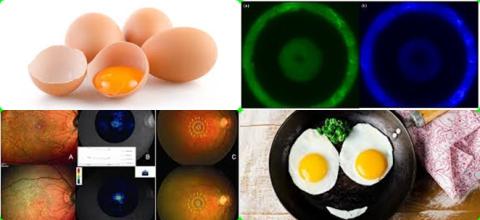
Objectives:
Increasing macular pigment optical density (MPOD) as a result of increased macular concentration of lutein and zeaxanthin may reduce the risk of age-related macular degeneration (AMD). Therefore, this review article has been conducted.
Have daily egg consumption beneficial effects on macular pigment optical density and serum lutein levels?
Study design:
This review article included 5 RCTs with a total of 296 participants.
There was no heterogeneity between studies.
Results and conclusions:
The investigators found that egg consumption significantly increased macular pigment optical density [WMD = +0.037, 95% CI = 0.004 to 0.069, p = 0.027] and serum lutein levels [WMD = +0.150 μmol/L, 95% CI = 0.037 to 0.263, p = 0.009].
The investigators found subgroup analyses showed that egg consumption had a larger effect on macular pigment optical density in studies with a parallel design and increased serum lutein levels to a greater extent in a healthy population.
The investigators concluded daily egg consumption have beneficial effects on macular pigment optical density and serum lutein level is inversely associated with reduced age-related macular degeneration progression. Further clinical trials are required to confirm the results of this review article.
Original title:
A positive effect of egg consumption on macular pigment and healthy vision: a systematic review and meta-analysis of clinical trials by Sikaroudi MK, Saraf-Bank S, […], Soltani S.
Link:
https://pubmed.ncbi.nlm.nih.gov/33491232/
Additional information of El Mondo:
Find here more information/studies about review article/significant, egg consumption and elderly diseases.